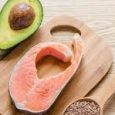Getting fit requires taking action, and sometimes during the course of taking action, you’re bound to make a few mistakes. The majority of the mistakes that people make are usually with their nutrition habits.
There are 5 common nutritional mistakes that can derail your fitness goals, but once you know what they are, you can work to avoid them. You can’t just perfect your exercise regimen and expect that to work in spite of your diet.
Failing to Use Carbs Strategically
Believe it or not, carbs are not the enemy of fitness but somewhere along the line, myth was taught as truth that if you want to stay fit, you have to cut out carbs. The reasoning behind this myth was that carbs were bad and people were more likely to over-indulge in carb-laden foods like cake, soda, fast food and more.
If you have those kinds of carbs in your meals, even though they’re not healthy for your body, they still can’t derail fitness goals if you use them strategically. But what most people do is they either stop consuming carbs completely or they plan to eat the same amount of “good” carbs every day, without variation.

That’s not using carbs strategically either. You have to look at carbs as the fuel you need to live day to day. Sometimes, you’re going to need more fuel than at other times, such as when you’re working out.
So what you can do is a practice what’s known as carb cycling. This means that on some days, you’ll eat more carbs than you will on other days. You’ll switch up high/low for your week.
Now, that doesn’t mean it’s all random like you’re just going to eat higher carbs just because you feel like it. You only eat a higher amount of carbs when you’re practicing your fitness goals.
So if you’re going to the gym or you’re working out at home, your body is going to burn more fuel. That’s when you need the higher carb load. If you’re sitting at home relaxing, watching a movie or just hanging with friends, then your body has no need of the same fuel deposit because you won’t burn that fuel since you’re not using your muscles the way you are with a workout.
What you want to do is to make sure that every higher carb day is always a workout day. Having the extra fuel allows your body to have the energy that it needs to handle the workout.
You’ll be able to build muscle and shed fat without getting weak. Set your eating schedule around your workout days, then on your off days, you can easily cut that load in half.
So if you have 300 grams of carbs during your Monday workout, then on your Tuesday off, you’d only consume 150. The key to using this strategic carb eating is to make sure that just because you’re working out, you’re not piling on too many carbs.
Because eating more than your body burns still results in weight gain regardless of the workout. To figure how many carbs you should eat, you need to look at what kinds of workout you’re doing. If your workout is intense, such as doing something like HIIT, you’ll need more carbs than if your workout was easier such as walking.
Eliminating Fat from your Diet
For years, certain nutrition advice told people that fat was bad and that it was best to eliminate it from all diets. That’s a huge mistake and one that can actually hurt you nutritionally.
Your body needs fat. There is a type, the good kind, that it needs over other types of fat because you need it to help you feel full. This can keep you from experiencing cravings and going off on a binge, which can cause you to blow your fitness goals.
Plus, good fats keep your skin soft. Without it, you develop dry skin. They also help to regulate your body temperature as well as monthly cycles for women. Your body must have good fats in order to be able to function properly.
What you want to do with fats in your diet is to avoid trans fats. This is the kind of fat that solidifies. You’ll find it items like cookies, cakes, margarine and more. Over consumption of trans fats leads to heart disease, diabetes and more.
Fast food is usually loaded with trans fats. You also want to watch out for saturated fats. You can find this type of fat in certain dairy products such as whole milk, red meats and more.

The reason this kind of fat is bad to have in your diet is because it can lead to plaque build-up in your heart’s arteries, which in turn leads to heart attacks. While you can have some saturated fat every now and then, most people consume far too much of this as well as trans fats.
You should not avoid fat altogether. You just need to make sure you’re consuming the kind that works to help your body rather than harm it. This kind of fat is called monounsaturated and polyunsaturated.
People refer to them as good fats versus bad fats. Instead of being one of the culprits that can cause a heart attack, these fats actually help lessen the chance that you’ll develop the heart disease that leads to heart attacks.
You can find them in a lot of different food items. Nuts are high in these good fats. So are some types of seafood such as fish. One example of this is salmon. You can find them in certain vegetables as well as seeds, too.
The oils that you consume can be healthy if they made with these fats. This would be olive oil rather than vegetable oil which is not good for you. Other oils that are good for you are peanut oil or sunflower oil.
Polyunsaturated fats can work in the body to help get rid of inflammation. They also help your blood to be able to clot when it’s needed. This kind of fat can lower your cholesterol.
You want to look for foods that are rich in Omega-3. These contain the good fats. Some of these are foods such as flax seeds, walnuts, canola oil and soybeans. But this fat can also be found in sardines, oysters and trout.
Not Managing Calories Properly
You don’t want to make the nutrition mistake of not handling your calories well. You can’t manage them well if you don’t know how many you need. While a guideline can give a general overview, if you don’t know what your body needs, you’ll get it wrong.
You might need more or less than someone else does. So the first step is to make sure that you calculate your calories. It’s a mistake to try to guesstimate what you need. To figure this out, you need to know what your basal metabolic rate is (BMR) and what this means is the amount of calories you must consume in order to stay alive.
The guidelines for a basic BMR for women is around 1,500. For men, it’s around 1,800. That does not take into account any activity at all. So when you calculate your calories, you want to make sure you don’t go below 1,500 and stay there.
Your body can’t function well on too few calories and it’s dangerous. Many people don’t figure up their calories and that’s a big mistake. Calories can quickly add up and throw you off your fitness goals.
Even the good foods can be bad if you go overboard consuming them. You have to track your calories. That means you can’t just keep a running total in your head because you will forget.

You will misjudge. And it’ll be easier to think you can grab “just a little bit” and not count it. Or, you’ll sample while cooking and all those little tastes can add up to more calories than you need.
The best way to track your calories is by writing them down. This is why many people use a fitness tracker. It can help you keep up with what you’re actually eating so that you don’t have to just wing it.
By keeping track, you’ll know if you’re consuming enough for your workouts too. You need the right amount of calories or your workout won’t be as good as it could be. You won’t have the stamina that you need.
It’s a mistake not managing your calories well because you can consume too few calories. And that’s just as bad for your body as having too many. This can slow your metabolism, prevent you from losing weight and if the deficit is too much, it can negatively impact your internal organs.
You need to manage your calories so that you’re not going over. This leads to weight gain but it can also be frustrating because you’ll feel like you’re not making any progress and this might discourage you and lead you to giving up on your fitness goals.
Not eating the right kinds of calories can also be problematic. You might have heard that a calorie is a calorie whether it’s good or bad. However, the difference between them is that some calories are empty.
They give you nothing nutritionally, they can cause you to gain weight and they can also cause harm to your body. Good calories help prevent diseases plus, you get the nutrients that your body needs since these foods contain minerals, vitamins and more.
Overdoing It with Workout Products
There’s no doubt that workout products are convenient. You can quickly get the energy that you need to power through your workouts by using one or more of these products. But just like anything else, if you overdo it, that’s a big nutrition mistake.
The reason is that when you use too many workout products, you’re not getting real nutrition. And without real nutrition, your body isn’t getting the right vitamins and other nutrients that it has to have in order to function properly.
It’s not wrong to use workout products such as the protein items. You can usually find this in shakes or supplements. Some people replace meals with a workout bar that’s supposed to give them all the calories they need for a good workout.
Others rely on protein powder and mix up their own creations. While none of these are a problem, the problem begins when those things start replacing regular food. You can use a workout product every now and then to replace a meal, to have a snack before working out or whatever, but it’s not healthy to overuse them.
It’s quicker to simply grab a workout product and think that you’re getting your fuel and nutrients but by skipping out on regular food, you are robbing your body of what it gets from those foods.
When you replace too many snacks or meals with workout products what happens is it can start to cause trouble with your liver. You can also harm other organs by overusing protein shakes or meal bars.
Whenever you consume more workout products than you should, it can become a habit that can develop into a food disorder. While you might not have many side effects from protein in the shakes unless you have kidney disease, you can have problems with other additives.

Particularly any of the products that promise to boost energy or burn fat. Many of the substances contain caffeine and you can overdo it if you’re not following the guideline limitations.
This is a habit that usually develops because people think that if a little bit helps them feel better and improves their workout, then more of it will be even better when that’s not the case at all.
The problem with this type of thinking is that when you consume different workout products, you’re getting vitamins and minerals from all of the products. It can be easy to accidentally get too many vitamins and minerals.
If you exceed the daily recommended dose regularly, your body can’t handle that. When that happens, you can cause some serious health issues. The main concern over consuming too many workout products isn’t health issues but is rather a lack of proper nutrition that can lead to a deficiency. Remember that like anything else, workout products are best when they’re used only as directed and only in moderation.
Ignoring Meal Plans to Put Most of Your Focus on Exercising
One of the nutrition mistakes that happens is when people believe that exercise is more important than nutrition. They think that they can exercise and eat whatever they want.Sometimes they think that the key to losing weight is solely the responsibility of just working out regularly.
But before you jump on that mistaken believe and quit focusing on meal plans, you’ll want to know that nutrition is actually ¾ of successful fitness while exercise is only ¼ of it.
So don’t give up planning those healthy meals if you want to get fit. It’s true that exercise is beneficial. Your body needs regularly exercise. You need it to keep your body flexible and you need it to build strong muscles.

But exercise without the right meal plans will backfire on you. If you’re not getting enough to eat or you’re not eating right, your body will react one of two ways. Without enough to eat, your metabolism slows down and trying to lose even a pound will feel like an uphill battle.
When you don’t eat right and exercise, you won’t have the stamina that you need to stick with it. Nutrition and exercise work together and you’ll cause a fitness deficiency if you set exercise above healthy eating.
You already know that you have to consume fewer calories than what you burn through exercise if you want to shed unwanted pounds. But the calories you consume need to be smart calories.
You need the food to give you the strength for doing things like cardio workouts, cycling, running and more. Use a meal planning app or a meal planning journal. This will help you ensure that you’re getting the right amount of vitamins and minerals.
Many apps will track the amount of carbs you get as well as the amount of fats, protein and more. This will help you be able to see at a glance that your focus is balanced between both nutrition and exercise rather than putting one above the other.
These tracking tools can help you figure up your daily calorie needs as well as how many calories your exercise routine burned. When you have this information, it can be crucial to unlocking the reason why your diet hasn’t been working or why your workouts aren’t giving you the results that you want.
If you’re not sure about the nutrition in meal plans and it seems a little overwhelming to figure it out yourself, then choose a plan that’s pre-made that’ll ensure you get all the healthy good stuff in your diet. There are many apps, both free and paid, that will give you step by step guidance.





